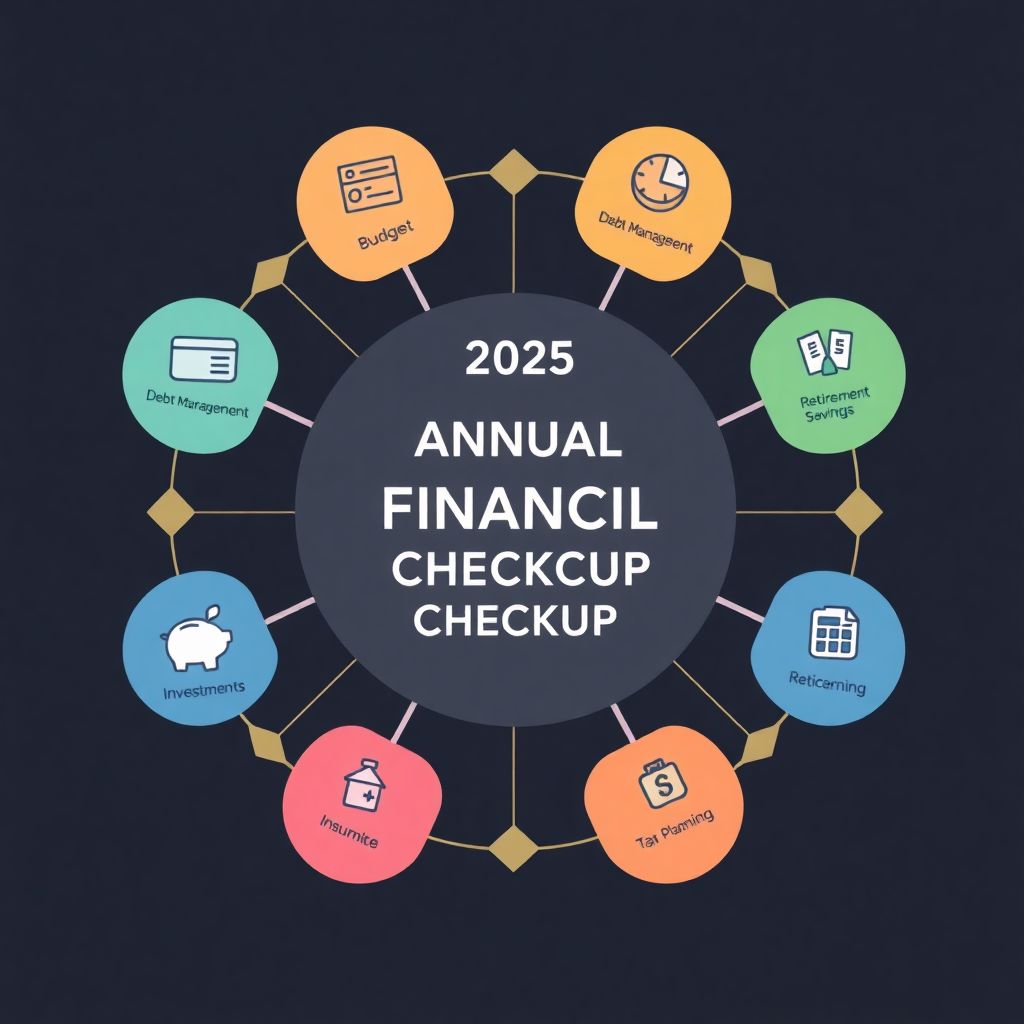Annual Financial Checkups: What to Review and When
Why Annual Financial Checkups Matter More Than Ever
In 2025, with inflationary pressures still echoing from the early 2020s and markets swinging between volatility and recovery, financial discipline has become not just prudent—but essential. Annual financial checkups are no longer a luxury for the financially savvy; they’re a necessity for individuals and families at every income level.
Historically, the concept of a “financial checkup” gained traction after the 2008 financial crisis. As households began to understand the consequences of unchecked debt and insufficient savings, financial advisors started promoting the idea of an annual review—similar to a physical exam for your fiscal health. Fast forward to today, and this practice is being adopted even more broadly, with digital financial tools making the process more accessible.
What Is an Annual Financial Checkup?
A financial checkup is a comprehensive review of your financial situation conducted once a year. It includes evaluating income, expenses, savings, debt, investments, insurance, taxes, and financial goals. Think of it as a diagnostic tool: it helps detect problems early, adjust strategies, and ensure you’re on track.
To visualize it, imagine a circular flow diagram with the following checkpoints:
– Budget
– Emergency Fund
– Debt Management
– Investments
– Retirement Savings
– Insurance Coverage
– Tax Planning
– Estate Planning
Each component feeds into the next, creating a full picture of your financial ecosystem.
1. Budget Review: The Foundation

Start with your monthly budget. Compare your actual spending to your planned allocations. Have your expenses crept up due to lifestyle inflation? Did you account for one-time costs like home repairs or medical bills?
Example: If your grocery bill has increased by 20% over last year, is it due to price hikes or more frequent takeout? Adjust accordingly.
When to do it: January is often ideal, as it sets the tone for the year. But budget tweaks should be considered quarterly.
2. Emergency Fund Status
The pandemic underscored the importance of an emergency fund. Financial advisors typically recommend saving 3–6 months’ worth of expenses in a liquid account.
In 2025, with rising healthcare and utility costs, many experts now suggest targeting closer to 6 months, especially for freelancers or gig workers.
When to do it: Annually, but if your life circumstances change—new child, job loss, or big moves—reassess immediately.
3. Debt Audit: Good vs. Bad Debt
Not all debt is created equal. An annual checkup should break your obligations down into:
– High-interest (credit cards)
– Low-interest (mortgages, student loans)
– Revolving vs. installment debt
Comparison Insight: Unlike a mortgage, which can build equity, credit card debt erodes your wealth over time. If your credit card balances aren’t paid off monthly, prioritize repayment.
When to do it: Mid-year is a great time, especially after tax season, when you have a clearer view of your cash flow.
4. Investment Portfolio Check
Markets evolve, and so should your portfolio. In 2025, with AI and green energy stocks dominating headlines, many investors are revisiting their allocations.
Key steps:
– Rebalance your portfolio to maintain target ratios (e.g., 70% stocks, 30% bonds)
– Review performance relative to benchmarks
– Consider tax-loss harvesting if needed
Example: If your tech holdings now make up 50% of your investments (up from 30%), you may be overexposed to market swings.
When to do it: Annually, preferably in Q4 to allow for year-end adjustments.
5. Retirement Planning: Are You on Track?

Use annual checkups to assess your retirement savings progress. Are you maximizing contributions to IRAs or 401(k)s? If you’re over 50, are you using catch-up contributions?
Diagram Insight (Verbal): Imagine a timeline starting at your current age and ending at your ideal retirement age. Mark milestones: current savings, projected growth, and estimated needs. Does the growth line meet or fall short? Adjust accordingly.
When to do it: Ideally in January or after receiving your year-end investment statements.
6. Insurance Coverage: Protection Check

Review your policies:
– Health
– Auto
– Home
– Life
– Disability
Life changes—marriage, kids, career shifts—can all affect your coverage needs. For example, in 2025, climate-related disasters have led many homeowners to reassess their property insurance.
When to do it: Around your policy renewal dates, or during open enrollment for health insurance.
7. Tax Strategy: Plan, Don’t React
Don’t wait until April to think about taxes. Use your financial checkup to:
– Estimate your tax liability
– Adjust withholdings or estimated payments
– Maximize deductions and credits
Example: If you donated to a charity or installed solar panels in 2024, those may impact your 2025 taxes. Plan ahead to document and claim them properly.
When to do it: Late Q3 or early Q4 is ideal for tax planning.
8. Estate Planning: Not Just for the Wealthy
If 2024 taught us anything, it’s that unexpected events can disrupt families. Ensure your will, healthcare directives, and power of attorney are up to date. If you have children, name guardians.
Common Misconception: Estate planning is only for the rich. In reality, every adult needs a basic plan to avoid legal complications.
When to do it: Review annually, especially if there are major life events like birth, divorce, or death in the family.
Putting It All Together: Your Annual Financial Calendar
Here’s a sample timeline to structure your checkup:
1. January: Budget, retirement contributions, insurance review
2. March–April: Tax planning, debt audit
3. July: Mid-year check-in on expenses and savings
4. October–November: Investment rebalancing, estate planning
5. December: Final review, goal setting for the next year
Conclusion: Small Steps, Long-Term Impact
Think of your annual financial checkup like maintaining a car. You wouldn’t drive cross-country without checking the oil, brakes, and tires. Similarly, you shouldn’t go through a year without fine-tuning your finances.
The beauty of financial checkups is that they’re proactive. Rather than reacting to crises, you’re steering your financial life with clarity and purpose. Whether you’re building wealth, managing debt, or planning for retirement, these regular reviews are your best tool to stay in control.
And in 2025, control is exactly what we all need a little more of.
